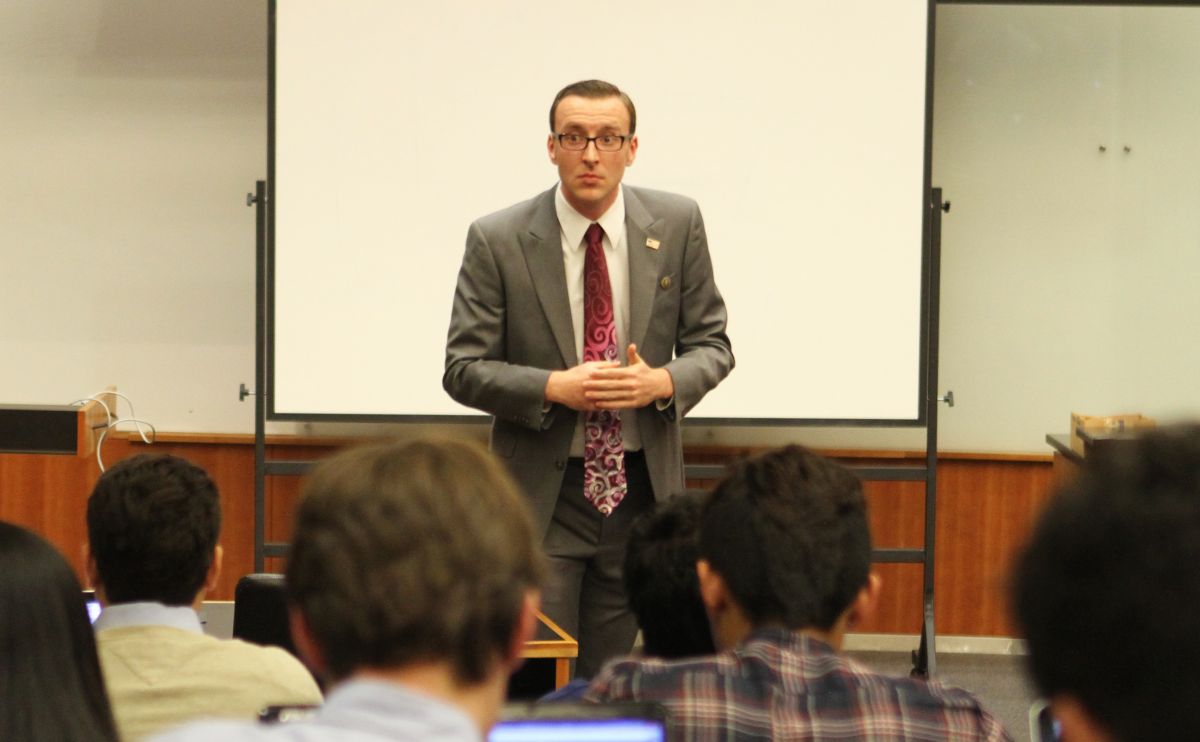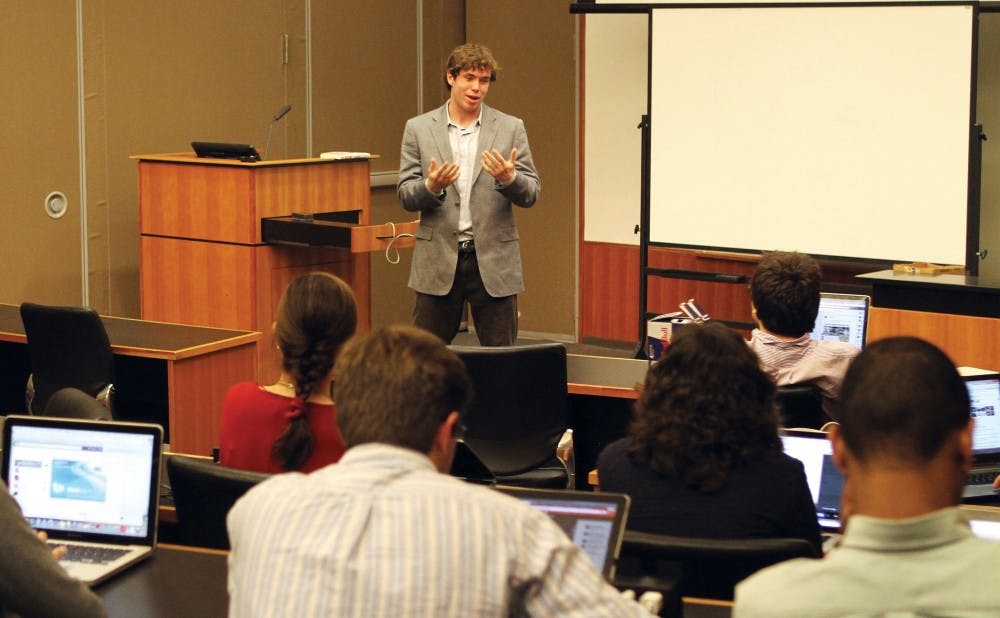The Duke Student Government Senate reviewed appeals and voted on Student Organization Finance Committee allocations for the 2014-2015 annual budget Wednesday night.
The SOFC annual budget funds capital expenditures and events for chartered student groups outside of the programming fund. After considering adjustments for student-run magazine The Standard, Students of the Caribbean Association and DuARTS, the Senate decided to adjourn at 2:45am and thus postpone the approval of the final annual budget until the last Senate meeting of the year on April 22.
Pro tempore Patrick Oathout, a senior, moved to postpone the budget approval due to the late hour and the Senate’s lack of concentration on the issues at hand.
“The reason I think we should end right now is because we’re all tired—we don’t have the attention span to give this important material the attention that it deserves,” Oathout said.
There were 19 student organizations that submitted appeals, seven more than last year and 17 more than two years ago. The groups that appealed were The Standard, Students of the Caribbean Association, duARTS, Duke Africa, the Duke Partnership for Service, the Catholic Center, Inferno, Unzipped, Muslim Students Association, Duke Political Review, Vietnamese Students’ Association, Blue Devils United, Duke Real Estate Club, The Chanticleer, Presbyterian Campus Ministry, Latent Image, DukeAfrica and Duke College Republicans. DPS was appealing on behalf of 17 organizations that fall underneath it.
Before adjourning, the senate approved $1,599.45 to The Standard, mostly for administrative costs. The senate also approved $800 to the Students of the Caribbean Association and $1728.50 to duARTS.
Two representatives from The Chanticleer presented their appeal for a minimum of $20,000. Junior Rodolfo Baquerizo, treasurer of The Chanticleer, explained that students end up paying approximately $40 to The Chanticleer through Student Activities Fees, which is significantly less than that required by peer institutions.
“Every peer institution—Harvard, Yale, Stanford, Brown—charges over $85 for their yearbooks. That means we’re producing and giving a yearbook to each of our seniors for less than half of that cost,” Baquerizo said, adding that 92 percent of seniors have opted in to receiving the book this year.
Natalia Arenas Gallo, editor in chief of The Chanticleer, said they have been looking for ways to limit the amount of funding required from SOFC by seeking out funding from the Alumni Association and decreasing the number of pages printed.
Arenas Gallo, a junior, noted that The Chanticleer may seek funding from the Senior Class Council and the Development Office, though she said both groups require that SOFC give preliminary support to demonstrate student interest.
In other business:

The Senate voted to select justices for the seven justice positions on the Judiciary for the 2014-2015 academic year. The DSG Judiciary Selection Committee recommended eight students for this position – freshman Jonathan Chapman, junior Nikolai Doytchinov, freshman Zachary Fuchs, junior Will Giles, junior Joseph Provenzano, sophomore Max Schreiber and freshman Catherine Fei. Executive vice president-elect, Abhi Sanka, a sophomore, spoke on behalf of freshman Dana Raphael, who was not present. The Senate voted to approve all recommended students except for Schreiber.
Sanka presented the second reading of a statute to revise the house rules of the Senate. The revisions include disallowing senators from using computers and other technology for “unrelated business and social communication during meetings,” requiring that senators to ask permission of the Executive Vice President to leave early prior to the meeting and removing time limits from public forum and question time. The Senate approved the statute.
“I don’t think that this statute really compels you to do anything more difficult, it’s more about the principle and the values that I want to set as EVP,” Sanka said.
The Senate approved a class council resignation policy that states that the vice-president elect will take over for the president-elect if he or she is unable to take office and if the vice president-elect is unable to take office, the president-elect will appoint a replacement.
The policy comes after junior class vice president-elect Isabella Kwai announced her resignation earlier this week.
Get The Chronicle straight to your inbox
Signup for our weekly newsletter. Cancel at any time.

